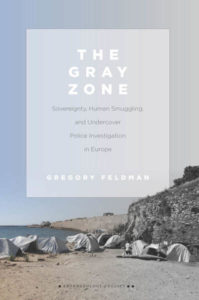
 West Germany and Israel: Foreign Relations, Domestic Politics, and the Cold War, 1965-1974
West Germany and Israel: Foreign Relations, Domestic Politics, and the Cold War, 1965-1974
By Carole Fink
Publisher: Cambridge University Press
Recommended by Nick Ostrum
In this highly readable study of the first decade of West German-Israeli diplomatic ties, Carole Fink teases out the intricacies of a relationship constantly beleaguered by its historical burdens and domestic and international political tensions. Rather than adopting a friend-enemy dichotomy, Fink successfully draws attention to the numerous contending and changing interests of both states. For the Federal Republic of Germany, primary interests transformed from the Adenauer-era quest for international legitimacy, the international exclusion of East Germany, and a diplomatic coming-to-terms with its Nazi past to Willy Brandt’s Ostpolitik, Nahostpolitik, European policy, and quest for the normalization of relations with Israel. The Israelis meanwhile continually emphasized the special character of German-Israeli ties, particularly as the Germans increasingly turned to neutralism in the face of the intensifying Arab-Israeli conflict.
Fink is keen to argue that this shifts in German-Israeli relations were not simply questions of antisemitism and philosemitism, or pro- or anti-Arab sentiments, but of political calculation and generational rifts. Rather than simply confrontation and divergent interests, moreover, she sees “a remarkable fluctuation of discord and stability.” And, indeed, even as relations frayed through the Yom Kippur War and the oil crisis of 1973/4, they more importantly persisted. This book is nuanced, but lively. It is thoroughly researched but also an informative introduction to this too frequently sidelined story of two states and peoples whose recent pasts have inextricably and awkwardly linked them and who struggled (and still struggle) to accommodate each other’s geopolitical interests.
 The Gray Zone: Sovereignty, Human Smuggling, and Undercover Police Investigation in Europe
The Gray Zone: Sovereignty, Human Smuggling, and Undercover Police Investigation in Europe
By Gregory Feldman
Publisher: Stanford University Press
Recommended by Hélène B. Ducros
The Gray Zone constitutes both a fascinating field-based investigation into how the borders of Europe are policed in invisible and secret ways and a philosophical reflection on the ways in which border spaces interrogate and problematize notions of state power, social order, systemic violence, and the relationship between morality and law in globalization. Benefitting from a rare access to an undercover unit policing the maritime regions of Southern Europe, political anthropologist Gregory Feldman brings readers into a world of covert surveillance where transnational human trafficking and migrant smuggling put sovereignty to the test. The case study provides Feldman with an opportunity to propose a bifurcated notion of sovereignty with one mode relying on the myth of the formal nation-state, while another entails the recognition of human plurality and individual agency. The gray zone represents those spaces where the state loses some of its oversight functions, where the line between licit and illicit is hard to draw, and where morality gets routinely challenged, for example when smugglers use existing laws to shape their operations and transport people across borders. Feldman’s anthropological inquiry demonstrates how trust and honor are essential components to build relationships with informants, but also within the tight-knit police unit itself. Focused on prostitution and pickpocket rings surveillance, this ethnography reveals that the police constantly negotiates sovereignty as the global gray zone deterritorializes the state, yielding new actors, many of them forming an expansive web of informal and secret non-state actors, who are either implicated in trafficking networks with roots in extra-European nations, or involved in investigating those. Issues of ethics, secrecy, violence and equality emerge to address the question of the relationship between the state and personhood, while methodologically the study triggers important considerations about the ethnographer’s role in reporting about and from within state secret policing activities. An invaluable empirical study with significant theoretical underpinnings, this book constitutes a unique account of the ways in which sovereignty is practiced in spaces at the edges of Europe.




